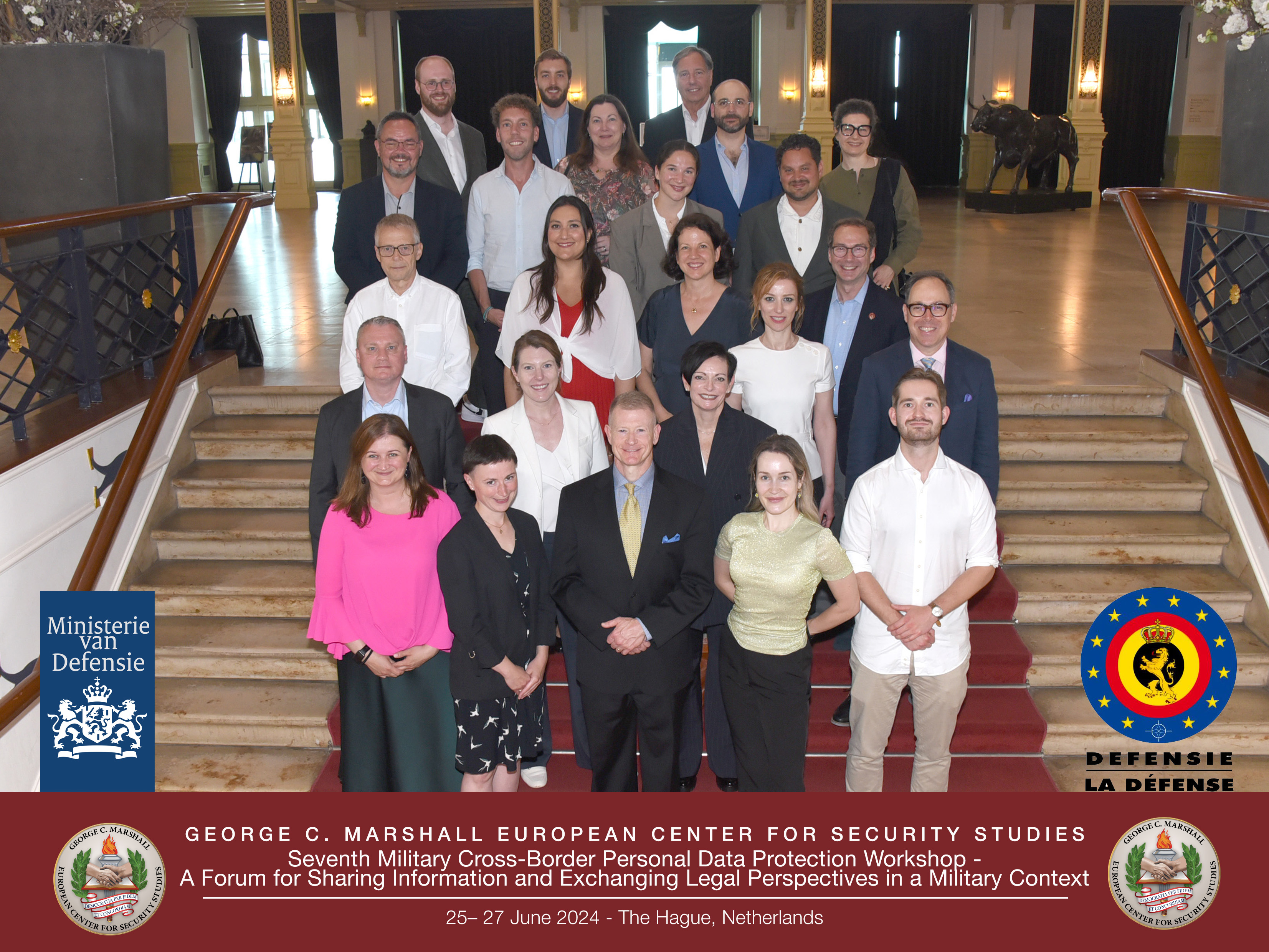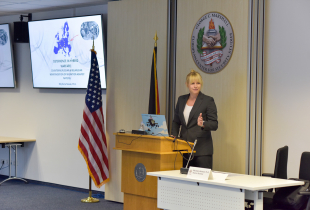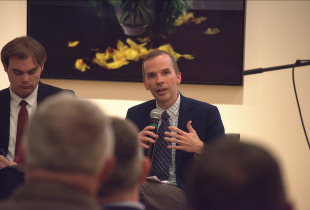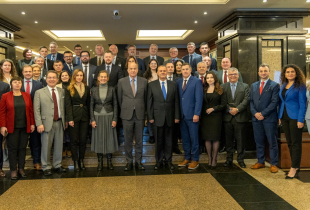GCMC Hosts 7th Military Cross-Border Personal Data Protection Workshop
THE HAGUE, Netherlands (June 25-27, 2024) – The George C. Marshall European Center for Security Studies convened the 7th Military Cross-Border Personal Data Protection Workshop, held in collaboration with the Netherlands and Belgian defense ministries. The event brought together 26 participants representing seven partner countries and six defense organizations.
The workshop served as a platform for the exchange of legal perspectives and operational experiences regarding the processing, sharing, and safeguarding of personal data within military units and national security organizations, in compliance with the European Union General Data Protection Regulation (GDPR).
“As Clive Humby said in 2006, data in the new oil,” said Marshall Center Professor Dr. Sean Costigan. “This international workshop shed light on the critical shifts we are seeing in data protection and privacy regimes.”
First day panel discussions revisited military data protection initiatives from the previous year's workshop, followed by a brainstorming seminar addressing challenges in legal interoperability concerning privacy issues. The aim was to identify common ground and find ways to address challenges.

Day two of the workshop focused on emerging areas of importance for the data protection community and specifically newer areas for NATO and national ministries of defense to consider as they manage privacy and data protection risks to their organizations and defense structures. Professor Dr. Scott Handler of the Marshall Center kicked off the discussion by providing an operational perspective on data protection and artificial intelligence. Michell Ramsdan, Senior Counsel at the U.S. Department of Justice, then provided a comprehensive update on the evolving AI regulatory landscape in the United States, highlighting recent executive actions by U.S. President Joe Biden.
"While the AI Executive Order is not analogous to the AI Act, we are aligned on the underlying risk-based approach, principles of trustworthy AI, and the importance of standards," said Ramsdan, who stressed for the group that, "It is our duty to apply existing, sound legal frameworks to AI and other emerging technologies in a rational and responsible manner. It is understood that if we violate the public trust, our jobs get much harder rather than easier."
The event enabled participants to engage in seminar group discussions on balancing operational ambitions and ethical boundaries in the use of AI within armed forces. Also discussed was the impact of cybercrime for data protection. Dr. Costigan linked the issues of AI and Cybercrime, which was followed by a keynote on the impact of cybercrime on military operations--challenging the group to apply deeper thinking to these issues.
“Effective data privacy practices not only help prevent unauthorized access and leaks, they bolster the effectiveness and trust in military operations,” he said.
The final day of the conference focused on laying a path to future collaboration amongst the group, from understanding the NATO Cooperative Cyber Defense Center of Excellence’s work on a forthcoming Handbook on Data Protection in Armed Conflict to brainstorming its application.
“During conflict the fact that the Law of Armed Conflict applies does not mean that you can completely forget about privacy. If you can take simple measures to preserve privacy, either before onset of conflict or even have some considerations during the conflict, then you should,” said Nick Wobma, law researcher at the NATO Cooperative Cyber Defense Centre of Excellence (CCDCOE) who lead the discussion on the new handbook. “This is even more the case if you are in an area where effective control is greater.”
The event concluded with planning for the workshop’s eighth iteration scheduled for June 2025, and recognition of the specific progress made on goals outlined last year, which were shared on the first day. Participants also expressed the need to continue growing the number of contributing nations to expand the impact of this collaborative platform initiated by the German Ministry of Defense and the Marshall Center.
The Military Cross-Border Personal Data Protection Workshop remains an important forum for fostering international cooperation and enhancing data protection measures within military and national security contexts. For more insights and updates on future events, stay connected with us at our Program on Cyber Security Studies (PCSS)


